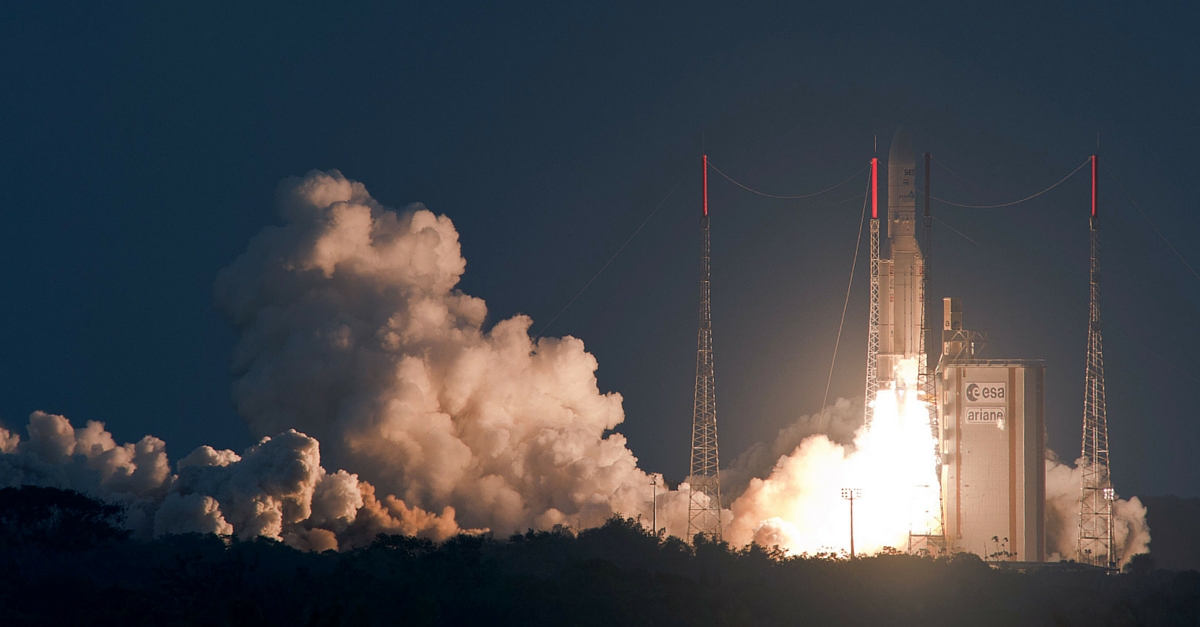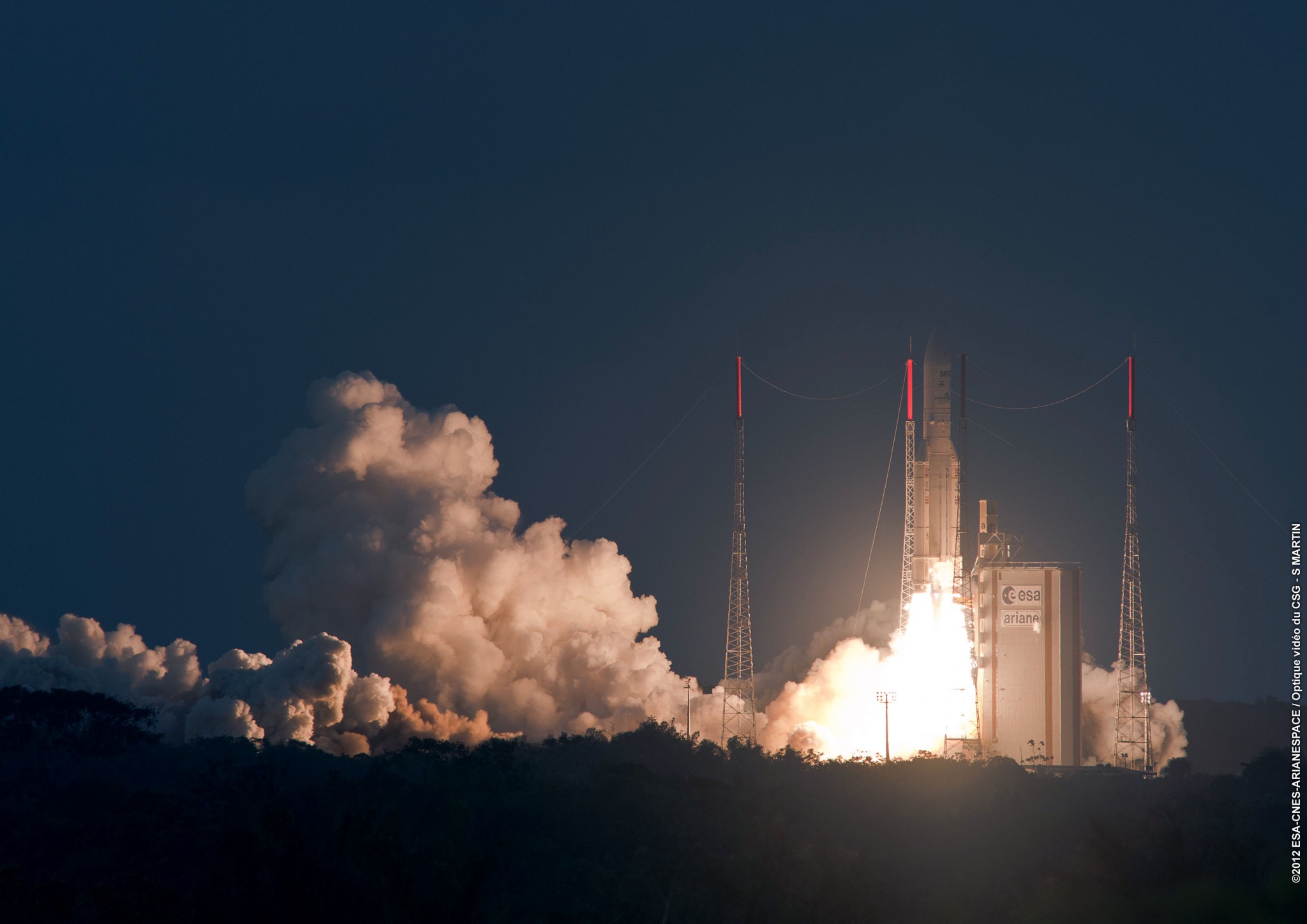ISRO Celebrated Diwali with Its Own Rocket – Indigenously Made Communications Satellite GSAT-15
On November 11, at 3:04 am, the Indian Space Research Organisation (ISRO) successfully launched an indigenously made communications satellite GSAT-15, from the Kourou spaceport in French Guyana.

At exactly 3:04 am on November 11, at the Kourou spaceport in distant French Guyana in South America, the Indian Space Research organisation (ISRO) gave India it’s Diwali gift. It successfully launched an indigeneously made communications satellite GSAT-15, using one of the world’s largest rockets – the Ariane-5.
Then, after a flight of 43 minutes and 24 seconds, GSAT-15 separated from the Ariane 5 upper stage in an elliptical geosynchronous transfer orbit (GTO). The ISRO Master Control Facility at Hassan, Karnataka, took over the command and control of GSAT-15 after its separation from the launch vehicle.
An Arabsat communications satellite also accompanied the GSAT-15 on the same launch.
Made at a cost of Rs. 278 crores, the GSAT-15 satellite weighs 3164 kg. With 24 transponders in the ku band, GSAT-15’s primary role will be to boost direct-to-home (DTH) broadcasting.
Photo source: www.satellitetoday.com
It will also enhance the GPS-aided augmented navigation (GAGAN) payload operating in L1 and L5 bands, which will help in aircraft navigation. GSAT-15 also provides a replacement for the Ku-band capacity of INSAT-3A and INSAT-4B satellites, which are getting ready to retire. GSAT-15 has a life of 12 years.
Currently, India has a shortage of transponders in space. The Indian satellite system is only able to handle a third of the required capacity, with the rest being leased from foreign satellite companies.
“The launch of GSAT-15 will be one more step towards further strengthening the satellite navigation infrastructure and sustaining the communication infrastructure in the country,” said ISRO Chairman A S Kiran Kumar.
Like this story? Or have something to share? Write to us: [email protected], or connect with us on Facebook and Twitter (@thebetterindia).
If you found our stories insightful, informative, or even just enjoyable, we invite you to consider making a voluntary payment to support the work we do at The Better India. Your contribution helps us continue producing quality content that educates, inspires, and drives positive change.
Choose one of the payment options below for your contribution-
By paying for the stories you value, you directly contribute to sustaining our efforts focused on making a difference in the world. Together, let’s ensure that impactful stories continue to be told and shared, enriching lives and communities alike.
Thank you for your support. Here are some frequently asked questions you might find helpful to know why you are contributing?


This story made me
-
97
-
121
-
89
-
167














